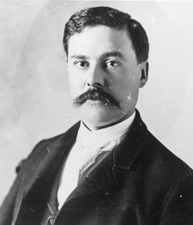I’m writing my first post as the new campus minister of Ecumenical Campus Ministries which represents a number of liberal protestant denominations at the University of Kansas. I met Chris when I was a pastor in Wyoming but apparently this summer is a time of transition for both of us.
I wanted to tackle a post by Dan Fincke at Camels with Hammers. He’s been dedicating his blog to theists every Thursday by tackling a topic or posing a set of questions. I plan to examine three of those questions from his most recent Thursday entry and perhaps that could shed light on one way a religious progressive could approach their tradition.
1) Even if I believe in a concept of God that I find philosophically satisfying, one that that is reasonable and based on sufficient evidence, how does one relate that to the God of the Bible? I think Dan finds this a stretch because the only candidates for God he seems to have is that of a Greek impersonal, metaphysical principle.
That could be difficult, not impossible though. Though I don’t believe in a God that is an impersonal metaphysical principle, all one would have to demonstrate is that there is enough continuity between the God concept one is working with and the God concept of the given religious tradition.
But I understand God as the source of value, the good, salvation and transformation, of all that upholds and sustains life. Such a God is, of course, involved in the very fabric of life since that’s the only way we can talk about such things. The continuities with the Biblical account should be evident from there.
Of course, a few questions might be asked. What about the discontinuities? They exist of course. But that would presume my God concept is the final measure. Or it would presume that the tradition itself only has one concept to work with. Usually traditions are rich with varied and even contrasting ideas.
Those we connect with, of course, get lifted up. Those that we don’t, shouldn’t be dismissed too readily though. One’s concept of God could get pushed, challenged by taking ideas seriously that one wouldn’t initially entertain. One’s concept of God needs to be subject to revision and better insights.
Even if one rejects a given account of God, that too can be helpful. So when we read the conquest stories of the Bible, a conversation about violence, the situation the authors of the text experienced, etc. can open up conversations today as we grapple with questions of violence.
The other question that could be asked is; how does one know that the God described in Christianity fits in a way that other religious traditions do not? I don’t. Now, I think staying in a given tradition and digging deep will produce far more rewards then simply picking this or that idea in a gourmet style of religion.
And yet I don’t believe we should say that God is somehow being described in the Bible and then go on to dismiss accounts in the Qur’an or other religious texts. What about the Greek gods? Again, my answer would be the same. We could learn a lot studying about Cronus for instance. What about western philosophy? I probably have richer descriptions of God because of Plato, which I’m grateful for.
So why Christianity? Because that’s my language and it has a 2000 year tradition, borrowing from even older ones, to get a handle on or at to at least raise questions about the basic problems of life. As somebody who has studied western philosophy, the ability to look to the past (and be charitable, not assuming the past is just filled with barbarism and superstition) is what gets me out of the prison of today.
So does God language in general. It connects me with a tradition which raises these questions and allows me to talk in terms of the good of life. I get to relish in my meta narratives, or what what early American philosophy, called the ideal. Losing the ideal has not helped us concretely deal with the gross injustices which mark our world.
2) To address Dan’s third question secondly; would I drop basic ideas to Christianity just to stay in the tradition? Does the tradition mandate I believe certain things? As a liberal protestant I’d certainly say no to the latter.
Once again, there is no singular belief in the tradition one could simply point to. To be part of the tradition is not to agree or disagree with a set of beliefs at all. It’s to be engaged in it, to care about the issues raised and to live in community with other people who are doing like wise.
So if I gained or lost any number of beliefs I obviously would not leave the church, nor would my tradition expect me to. It’s the genius of liberal protestantism. I think beliefs, instead of being believed or disbelieved, call for engagement and even transformation to make them more fitting ways to guide life and experience.
For instance, for me to say God is creator, can’t mean that God created the earth 6000 years ago. It has to fit with what we know of the world. In this case, it has to be a description that is in conversation with our evolutionary story and our 4.5 billion years of earth history. And yet it would not be dishonest to say God is the creator.
It would be no more dishonest then saying that the word “universe”. If said by a scientist in 1500 it would still have continuity with the term today even as our concept of the universe has changed over time. The term takes on the same weight but the account given and some of things that flow from that have changed quite a bit.
3) His second question and my last response, how can one be eternal and yet temporal? This is in reference to Jesus but to be honest I think it describes all of us. Yes Jesus was born, lived, and died. He didn’t escape anything of biological life anymore then the rest of us will.
But we know that what we do matters beyond our own time span. Certainly in those directly affected by our lives. But also in the general flow of things. Time can’t be undone and we are a permanent part of the story of our universe. We set the conditions for future possibilities.
And we know people who lived lives of generosity, service, even sacrifice. And whether we’ll remember their names or not, it somehow matters that they lived and died in the way they did. Whether it’s called geist, love, the logos, in their lives there was an intersection of the eternal and temporal.
The eternal always needs a specific context to find expression but once it does, the results get carried forward. In that the incarnation makes total sense to me. It’s not a contradiction as much as a powerful way of speaking of what we have all experienced. Which is a good test for theology in general.













